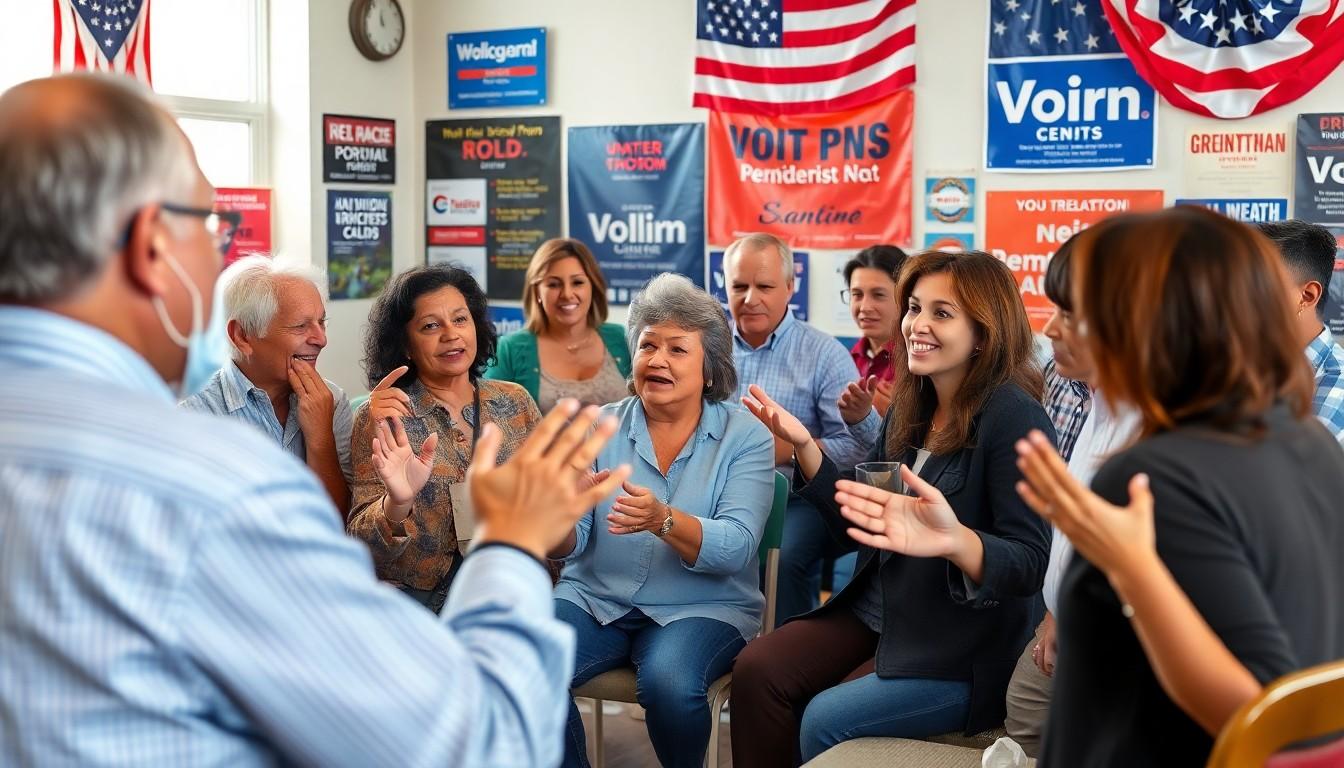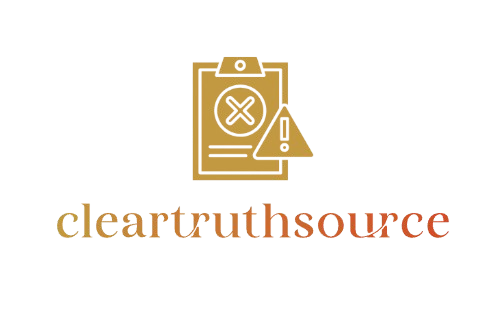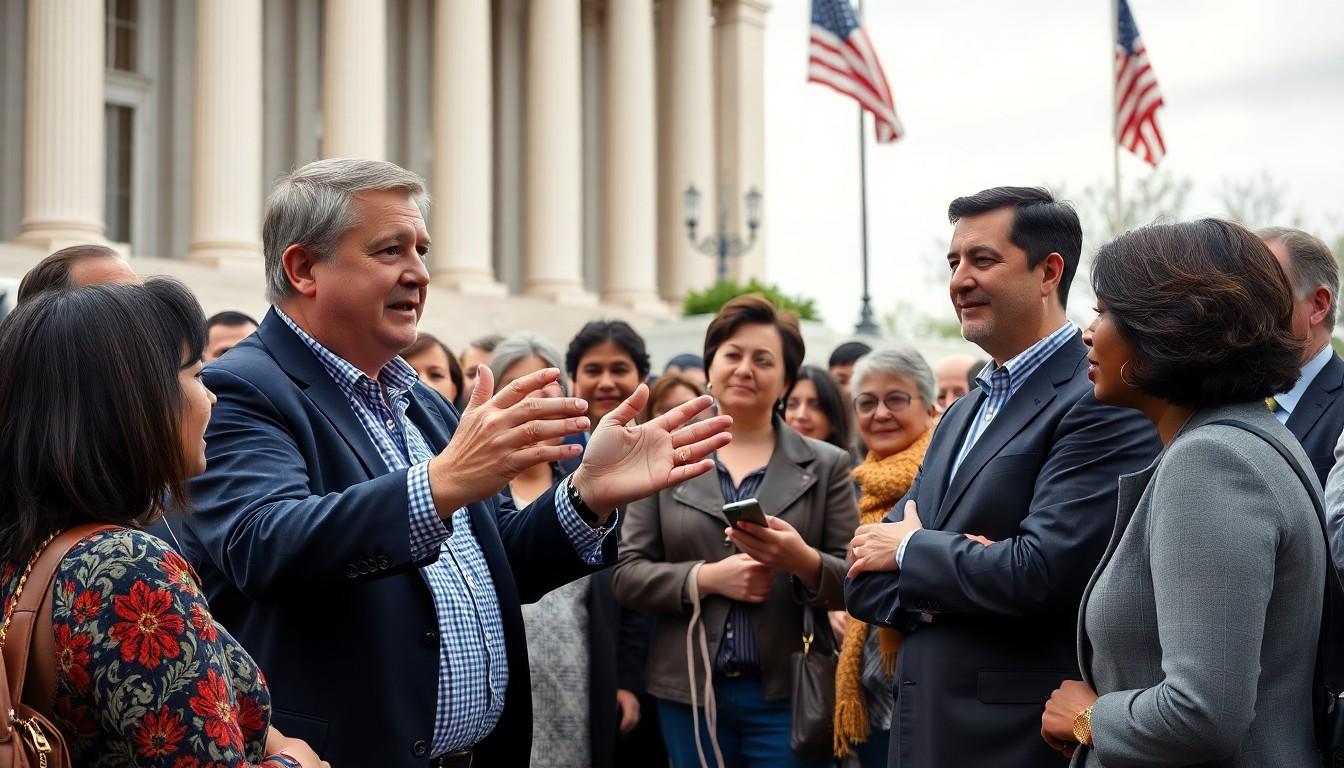In the wild world of politics, words can be as slippery as a politician dodging a tough question. Political jargon fills speeches, debates, and campaign ads, creating a mysterious language that often leaves everyday folks scratching their heads. Ever tried to decipher a candidate’s promise to “leverage synergies” while they simultaneously “disrupt the status quo”? It’s like trying to solve a Rubik’s Cube blindfolded.
Understanding Political Jargon
Political jargon refers to the specialized language that politicians and political commentators use, often leading to confusion among the general public. This term encompasses a variety of phrases, acronyms, and terms unique to the political sphere.
Definition of Political Jargon
Political jargon consists of specific terms conveying particular meanings within political contexts. Examples include “filibuster,” which describes a tactic used in legislative sessions to delay voting. Another term, “bipartisan,” indicates support from both major political parties. Such terminology often remains obscure to those outside political circles, resulting in significant misunderstandings during discussions and debates.
Importance in Political Discourse
Political jargon plays a critical role in shaping political discourse. It allows for efficient communication among politicians who share a common understanding of these terms. Furthermore, this specialized language can even influence public perception, as certain phrases capture attention or evoke emotions. The use of jargon often reflects a speaker’s political positioning, impacting how messages resonate with different audience segments. Ultimately, understanding political jargon enables citizens to engage more effectively in democratic processes.
Examples of Political Jargon

Political jargon encompasses a variety of terms that often confuse those outside political circles. Understanding these terms aids in navigating political discussions and media.
Common Terms and Phrases
“Filibuster” refers to a tactic used in the Senate to delay or obstruct legislation. “Bipartisan” involves cooperation between two major political parties. “Grassroots” describes initiatives driven by ordinary citizens rather than elite groups. “Super PAC” signifies a political action committee allowed to raise unlimited funds to influence elections. “Gerrymandering” marks the manipulation of electoral district boundaries for political advantage.
Jargon in Different Political Contexts
Political jargon varies significantly across contexts. During elections, candidates employ phrases like “swing state” to target specific voters. In legislative discussions, terms such as “markup” reference the process of debating and amending a proposed bill. Advocacy groups frequently use “call to action,” encouraging followers to participate in campaigns. During international discussions, “diplomatic immunity” signifies protection for foreign officials, preventing legal action against them. Recognizing these terms enhances citizens’ understanding of current events and governmental processes.
The Impact of Political Jargon
Political jargon significantly shapes how citizens understand and engage with current events. It can enhance or obscure political discourse, depending on the audience’s familiarity with the terminology.
Influence on Public Perception
Political jargon influences how the public perceives issues and candidates. Terms like “bipartisan” can evoke trust when interpreted positively, yet they may also cause skepticism if perceived as mere political maneuvering. Jargon creates a barrier to understanding that can alienate voters or, conversely, rally support among informed citizens. Clear communication about policies can foster better public understanding, while reliance on technical language may deepen confusion and mistrust. Survey data indicates that voters prefer straightforward language, as clarity often translates to credibility.
Role in Political Campaigns
During political campaigns, jargon plays a crucial role in shaping messages. Candidates frequently employ terms like “grassroots” to convey authenticity, but such language may also create an impression of elitism. Campaign ads often use jargon to convey policy positions quickly and precisely, aiming to consolidate voter support. Candidates who master the language of their constituents can draw clearer distinctions from opponents. Effective use of jargon can energize bases, influencing election outcomes. Polls reveal that ambiguous language can lead to voter disengagement, highlighting the need for clarity to connect effectively with the electorate.
Criticism of Political Jargon
Political jargon poses significant challenges in communication and understanding. Its specialized nature creates barriers, especially for those outside political circles.
Barriers to Communication
Voters often struggle to grasp the meaning of specific terms, leading to confusion. Knowledge gaps regarding jargon like “gerrymandering” can result in misunderstandings about critical issues. Misinterpretations occur when citizens encounter complex phrases without adequate context. Additionally, engagement declines as individuals feel alienated from discussions dominated by obscure language. Effective political communication relies on shared understanding, which jargon often undermines.
Misuse and Overuse in Debate
Debates frequently showcase political jargon, complicating the audience’s ability to follow arguments. Excessive use of terms like “Super PAC” can overshadow important points, diverting focus from substantive issues. Candidates who rely heavily on jargon may struggle to connect with voters, as clarity diminishes. Critics argue that political debates should prioritize accessible language, ensuring that the public comprehends the discourse. Overuse of jargon might alienate potential supporters, ultimately impacting electoral success.
Conclusion
Political jargon plays a significant role in shaping political discourse. While it can facilitate communication among politicians, it often alienates the general public. Understanding these specialized terms is essential for citizens who want to engage meaningfully in democratic processes. By breaking down complex language and encouraging clearer communication, voters can better navigate the political landscape. This not only empowers individuals but also enhances the overall health of democracy. Ultimately, fostering a dialogue that prioritizes accessibility over complexity can bridge the gap between politicians and the electorate.

